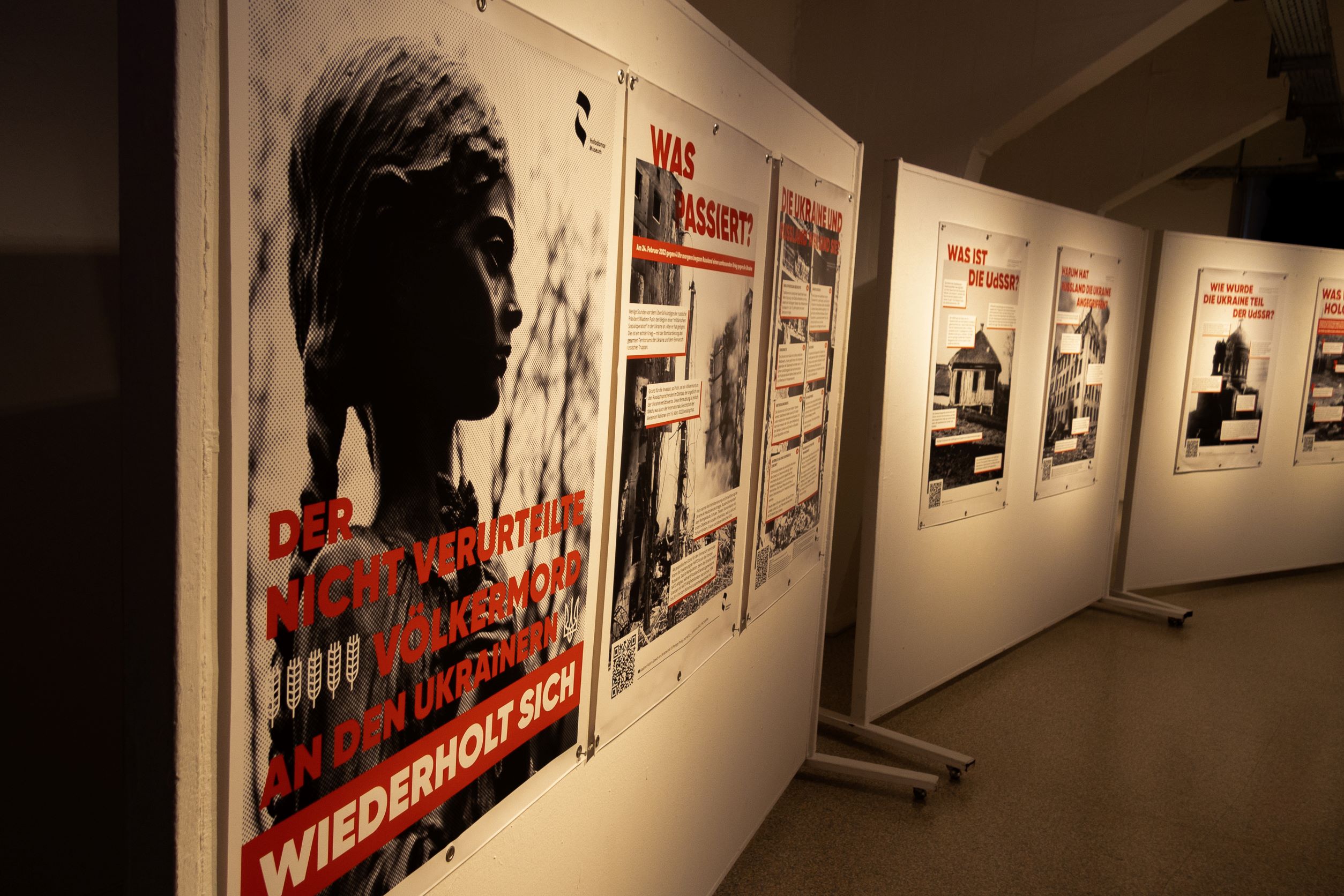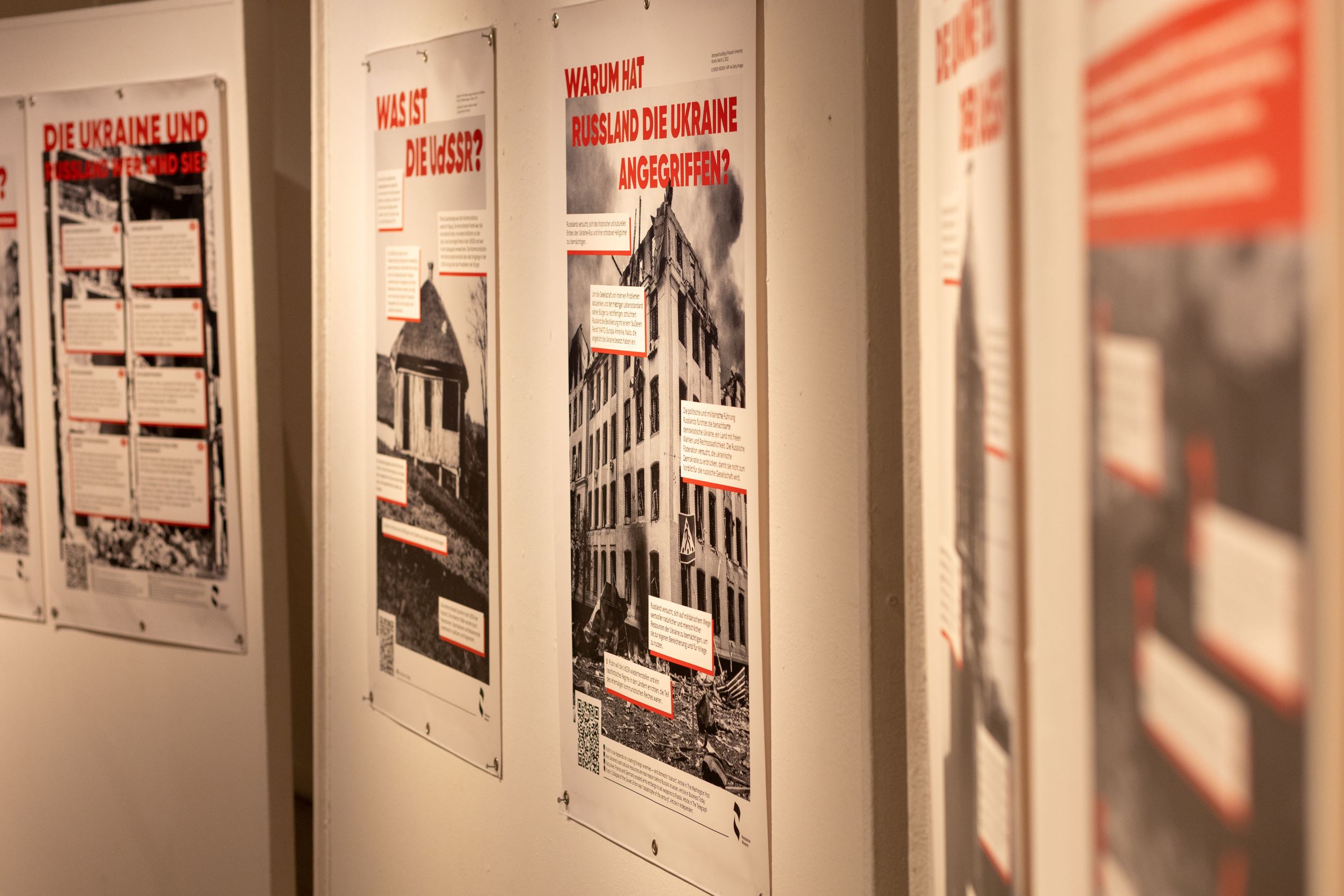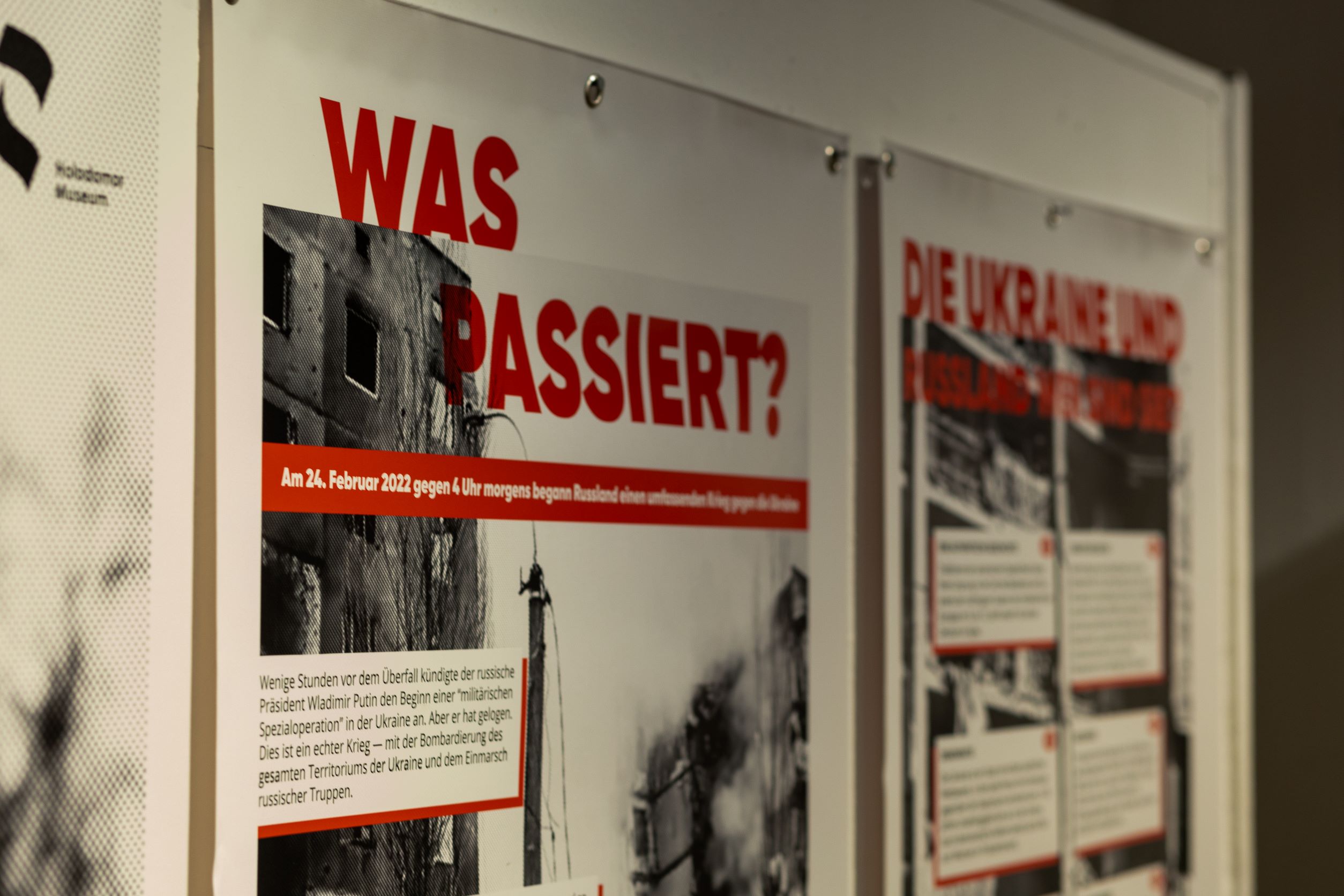Exhibition project “HOLODOMOR: History rhymes” was presented in the German city of Trier
On Friday, February 10, the TUFA cultural centre in the German city of Trier opened the project “HOLODOMOR: History rhymes”. As a part of this project, the exhibition of the Holodomor Museum, “The Uncondemned Genocide of Ukrainians Repeats”, the collage exhibition from the CUTOUT COLLAGE project “Parallels,” and the installation “Lunch prepared by Russia” created by our museum are on display.
The idea to organize an exhibition in the cultural centre “TUFA” in Trier appeared after the “Uncounted 1932.2022. Food as a weapon of genocide”, which Anhelina Leshak and Oksana Petruk organized in November 2022 on the occasion of the 90th anniversary of the Holodomor.
“Talking to the German public about the Holodomor is important not only in order to honour the memory of millions of innocent victims and thus symbolically restore historical justice, but also in order to show the historical persistence of Russia’s attempts to destroy Ukrainians, Ukrainian identity and the Ukrainian nation.” – says Oksana Petruk, one of the organizers of the exhibition and a student of the master’s program in history at the University of Trier.

“Many Germans are only now learning about the Holodomor because their understanding of Ukraine and its history, if it exists at all, is often distorted through a Russian lens and distorted by Russian propaganda. The Bundestag’s recognition of the Holodomor as a genocide of the Ukrainian people is key to German society’s understanding of the Ukrainians’ struggle and resistance. After the full-scale Russian invasion of Ukraine, there is a general public interest in Ukraine, as well as a willingness to listen to Ukrainians and provide them with a platform. Therefore, we must take responsibility and speak up so as not to lose this truly historic opportunity. When my colleague Anhelina Leshak informed me that she had the opportunity to organize an exhibition at the cultural centre TUFA Trier and offered to participate in the project, I immediately agreed and asked the Holodomor Museum for support. We really hope that this exhibition will be seen in other cities of Germany and Europe.” Oksana Petruk emphasizes.

Yana Hrynko, head of the exhibition and exposition department of the Holodomor Museum, joined the opening ceremony online, speaking about the concept of the exhibition “The Uncondemned Genocide of Ukrainians Repeats”. “Russia’s genocidal intentions to destroy Ukrainians have not changed since the Holodomor, only the methods have changed,” Yana Hrynko says. “Dictator Putin, propagandist media and ordinary Russians openly talk about intentions to destroy not only Ukrainian statehood but also identity.”

She also emphasized the importance of supporting Ukraine in defence against Russian aggression: “This war concerns everyone because the cult of militarism and World War II, racist ideology and imperialist ambitions of Russia pose a danger to all of Europe and the world. For the past ten years, the Russians have been threatening with the phrase “we can repeat.” And now we see how genocides, military aggression, horrors of occupation, rape and deportation are repeating. If this spiral of evil is not broken, it will unfold further and absorb more and more countries into the darkness of “Russian peace”.
Katia Syta, a co-founder of Cutout Collage Festival & Studio and co-curator of the Parallels exhibition, also joined the opening ceremony. Katia Syta told the visitors about the idea of creating a project and the artists’ work on archival materials and materials testifying to Russia’s current genocidal intentions against Ukrainians. Usually, the artistic reflection looks for ambiguity, but this is probably one of the few cases when there is no ambiguity but a clear confrontation between good and absolute evil. In addition, Katia spoke about the peculiarities of collage as a way of reflecting on the Holodomor and the current war of Russia against Ukraine.

Two tours in Ukrainian and German took place over the weekend. After the tour, visitors watched and discussed films from the series “Holodomor: mosaics of history“, a joint project of the Holodomor Museum and the “Ukraїner” initiative. In connection with the visitors’ requests, another tour of the exhibition will be organized. Also, as part of the exhibition, the screening of Serhii Bukovsky’s documentary film “The Living” and a lecture by the German historian, deputy head of the Ludwigshafen city archive, Dr Klaus Jürgen Becker, will be held on February 25.
Anyone can visit the exhibition until February 26 in the cultural centre TUFA Trier: Tue, Wed, Fri – 14:00 – 17:00; Thu – 17:00 – 20:00, Sat, Sun – 11:00 – 17:00.
Free entrance.
Let us remind you that on November 30, 2022, the German Bundestag recognized the Holodomor as an act of genocide.
Photo: aspectum.fotografie
